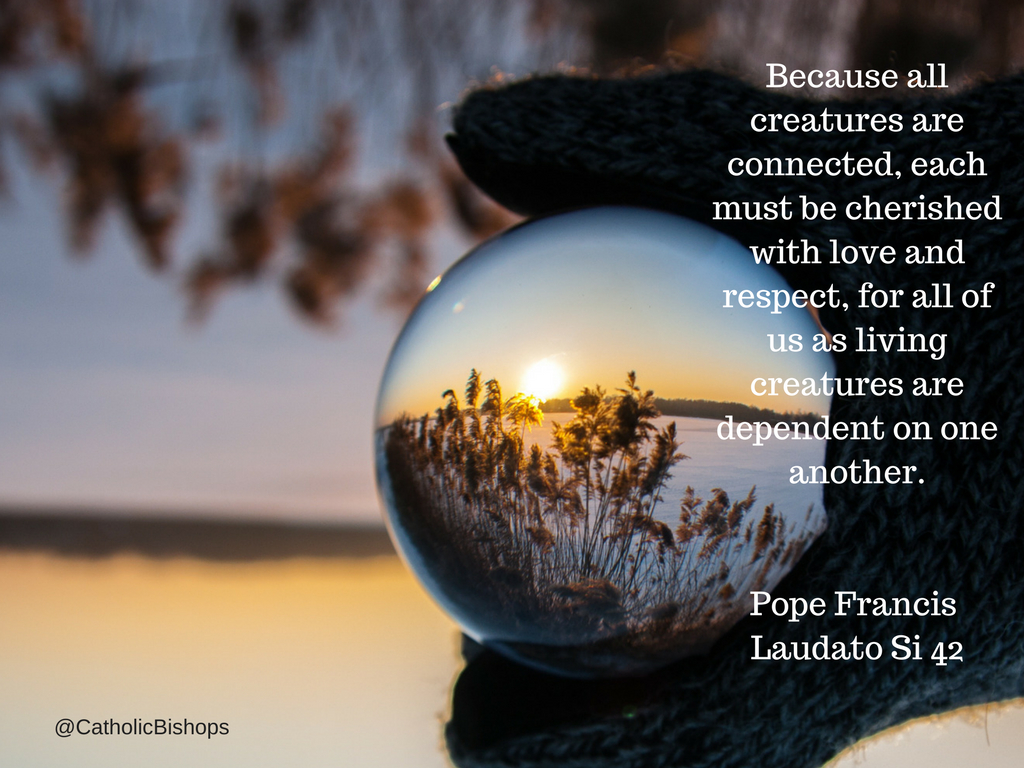Catholic Schools Week 2017 will be celebrated from Sunday 29 January until Saturday 4 February on the theme ‘Catholic schools: Learning with Pope Francis to care for our common home’. Father Tom Deenihan from the Council for Education of the Irish Catholic Bishops’ Conference shares his thoughts on the importance of Catholic Schools Week and this year’s theme.
Catholic Schools Week has now become a well-established feature on the diaries of both the Catholic school and the local parish. It has, over the years, provided an opportunity to strengthen links between school and parish and provided an opportunity for the pupils of both primary and post-primary schools to contribute to the Sunday liturgy in the Parish.
Catholic Schools Week 2017 begins on Sunday, 29 January. Mass to launch the week will be celebrated by Bishop Denis Nulty from the Church of Ss Peter and Paul in Portlaoise and will broadcast on RTÉ.
Portlaoise is a fine example of the contribution that Catholic schools make to both parish and society. The parish currently has five primary schools with a combined enrolment of 2,567 pupils from 46 nationalities. In addition, the parish has two Catholic secondary schools sharing a campus, one operated by the Christian Brothers (ERST), the other by the Presentation Sisters (Ceist), and two special schools under the patronage of the Diocesan Bishop with an enrolment of 125 pupils.
It is evident then that this parish has a vibrant, inclusive and Catholic education structure. This vibrancy and inclusivity is replicated in so many other parishes and must be continually proclaimed during Catholic Schools Week and throughout the year.
This year’s theme, ‘learning with Pope Francis to care for our common home’, is very much rooted in the papacy of Pope Francis and Laudato Si’.
The theme is one that has endless possibilities within both the parish and the school itself. For example, many of our schools have been engaging on projects such as the Green School Flag. This year’s theme also supports the ‘cross-curricular’ approach, touching as it does the curriculum areas of biology, science, CSPE, SPHE and religion and, in many ways, makes it easier to bridge the gap between school and parish. However, from those viewpoints, the celebration does afford an opportunity to highlight some passages from Laudato Si’.
The themes are also practical. In terms of the week itself, a separate theme has been allocated to each day and corresponding resources prepared.
Monday: Seeing the beauty of our common home;
Tuesday: Caring for our common home;
Wednesday: Grandparents: Watching over our common home;
Thursday: Protecting our common home;
Friday: Sharing our common home.
In terms of the idealism that one associates with so many of the pupils of our schools, Pope Francis boldly states that ‘everything is interconnected, and that genuine care for our own lives and our relationships with nature is inseparable from fraternity, justice and faithfulness to others’ (LS70). Many of our student’s charitable endeavours at Christmas would indicate an agreement with Pope Francis on this point. Pope Francis continues that ‘human ecology is inseparable from the notion of the common good, a central and unifying principal of social ethics’ (LS 156). ‘Once we start to think about the kind of world we are leaving to future generations, we look at things differently; we realise that the world is a gift that we have freely received and must share with others’ (LS 159).
And, of course, that respect for others, of solidarity, of equality, that typifies the ideology of our students is also echoed in Laudato Si’. ‘When we fail to acknowledge as part of reality the worth of a poor person, a human embryo, a person with disabilities … it becomes difficult to hear the cry of nature itself; everything is connected’ (LS 117).
In a time when schools, parishes and society are focussing on the scourge of suicide and self-harm, Pope Francis addresses this trend also when he says that the accumulation of constant novelties exalts a superficiality which needs new forms of escapism to endure the emptiness we have created. People no longer seem to believe in a happy future and, despite technological advances, do not accept that tomorrow will be better or that humanity will be better served (LS 113). Furthermore, when the media and the digital world become omnipresent, their influence can stop people from learning how to live wisely, to think deeply and to love generously (LS 47).
Pope Francis puts before us the image of Saint Francis who, like many of our students, was concerned for God’s creation, the poor and the outcasts. ‘He shows us just how inseparable the bond is between concern for nature, justice for the poor, commitment to society and interior peace’ (LS10).
This year’s theme provides the teacher and the preacher with a valuable opportunity to illustrate how Church teaching is reflected in the idealism of our pupils. Like Paul to the Greeks in Acts 17:23, there is an opportunity to tell our post-primary students that Jesus Christ, whom we worship as Lord and Saviour, is their ‘unknown God’, we share their idealism, we share their vision and we share their concern.
There are so many opportunities this Catholic Schools Week. For the sake of our schools, of our students, of society and of creation itself, let’s take some of them!
Rev Tom Deenihan
This article appears in the current issue of of Intercom magazine and is shared here courtesy of the editor, Father Paul Clayton-Lea. For more see www.intercommagazine.ie.


